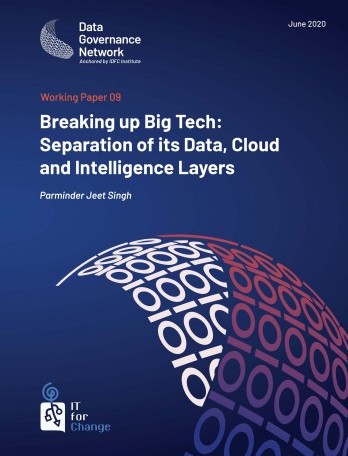

- Bigtech
- Data
- Datacommons

- 24 Jun, 2020


Big Tech is seen to have become too powerful, and causing many economic, social and political problems. But there still has hardly been any real challenge to its apparently unstoppable march. Piecemeal efforts from huge fines and sanctions to disallowing platforms from competing with dependent businesses have failed to make any significant dent on the dominant digital economy model, which is getting entrenched as the ‘new normal’. The problem here may be that the regulators are trying industrial era remedies on digital age problems.
Digital economy paradigm must be understood in its significant discontinuities with the industrial age. Regulation of digital economy needs to focus on the central role of data and data-derived intelligence. Competition regulators either ignore these key factors, or simply take a superficial view. A relatively better understanding about them is developing in the somewhat distant realm of technology governance; with its new focus on data sharing, data infrastructures, cloud neutrality, open digital ecosystems, domestic AI competencies, and public interest AI. Technology governance, however, normally does not have the enforcement teeth of competition regulators.
Bringing together these two governance or regulatory traditions about competition and technology, the paper proposes a composite new regulatory framework for the digital economy. Digital ecosystems are presented as the key new structural feature of the digital economy, increasingly superseding IP firms led industrial value chains. The focus is then drawn on the effective economic governance of data, cloud computing and AI – the building blocks of these digital ecosystems.
Considering data and cloud computing as infrastructural elements, with open and equitable access for digital businesses, will ensure the greatest digital productivity. AI based global power concentration can be addressed by models that adequately distribute society’s digital intelligence in space and ownership. While behavioural remedies have their role, the paper also presents a regulatory ideal-type of structural separations between the four key functional layers of digital value chains; data layer, cloud computing layer, intelligence layer and consumer facing intelligent services layer. The paper concludes that any successful regulation of the digital economy will require a new legislation and a separate digital economy regulator.